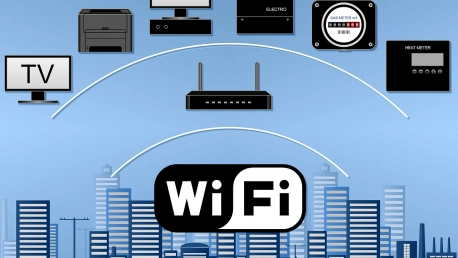In the modern digital age, the convenience of public Wi-Fi networks has become a double-edged sword. While it enables us to stay connected in countless places like cafes and airports, it also exposes us to significant cybersecurity risks. These networks are often unsecured, making them prime targets for scammers who create fake networks or hack into existing ones. As a result, users’ personal information, including social media logins, banking details, and email addresses, can be easily intercepted. This makes it crucial to adopt effective security measures to protect your data while using public Wi-Fi.
The Risks of Public Wi-Fi
Fake Networks and Hacking
Scammers frequently exploit public Wi-Fi networks by setting up fake networks with names that resemble legitimate ones. These deceptive networks can be almost indistinguishable from the genuine ones, causing unsuspecting users to connect and inadvertently expose their personal information. Once connected, hackers can easily intercept data transmissions, including login credentials and other sensitive information. Verifying the authenticity of the Wi-Fi network with the facility’s staff before connecting can act as a safeguard against these risks.Equally troubling is the risk of existing public Wi-Fi networks being hacked. Cybercriminals can infiltrate these networks to eavesdrop on your data, especially if the network lacks robust security protocols. This makes it essential to be cautious and deliberate when deciding to use a public Wi-Fi network. Even seemingly trivial actions like checking your email or social media accounts can provide valuable personal data to hackers. The best practice is to limit the use of public Wi-Fi to non-sensitive activities and be constantly mindful of the potential security threats.
Phishing Attempts and External Platforms
Another significant risk involves phishing attempts disguised as public Wi-Fi login pages. These pages often mimic the look and feel of legitimate network login screens, tricking users into providing their credentials. Some may even prompt you to log in via external platforms such as social media accounts, further increasing the risk of data theft. Awareness is key; always scrutinize login pages and avoid providing sensitive information on unfamiliar or unusual prompts. If something feels off, it’s better to err on the side of caution.Login pages requesting authentication through third-party platforms can be particularly dangerous. These platforms might be compromised or faked, allowing attackers to capture your login details and use them for malicious purposes. Users should remain vigilant and avoid any unnecessary logins, especially those that appear overly complicated or ask for more information than seems necessary. Remember, legitimate networks usually have simple login processes—anything overly elaborate could be a red flag for a phishing scam.
Protecting Your Data
Avoid Sensitive Transactions
When on public Wi-Fi networks, it is prudent to avoid engaging in activities that involve sensitive transactions. This includes accessing financial services, online shopping, or any activity that requires entering login credentials. These actions significantly increase the risk of data interception and unauthorized access. Public Wi-Fi is notorious for its vulnerability, making these activities a goldmine for cybercriminals who are on the lookout for unprotected personal data.Furthermore, even if a network appears safe, it is best to assume that someone might be ready to exploit any lapse in security. By postponing sensitive transactions until you are on a secure, private network, you minimize the risk of exposing your financial and personal information. Remember, the convenience of quick access through public Wi-Fi is rarely worth the potential cost of data breaches and identity theft. Developing this cautious mindset can go a long way in protecting one’s digital identity.
Utilize Virtual Private Networks (VPNs)
To safeguard your data, consider using a virtual private network (VPN), which encrypts your internet connection. Additionally, ensure that websites you visit are secured with HTTPS and avoid logging into sensitive accounts on public networks. By taking these precautions, you can enjoy the benefits of connectivity without compromising your personal information.









